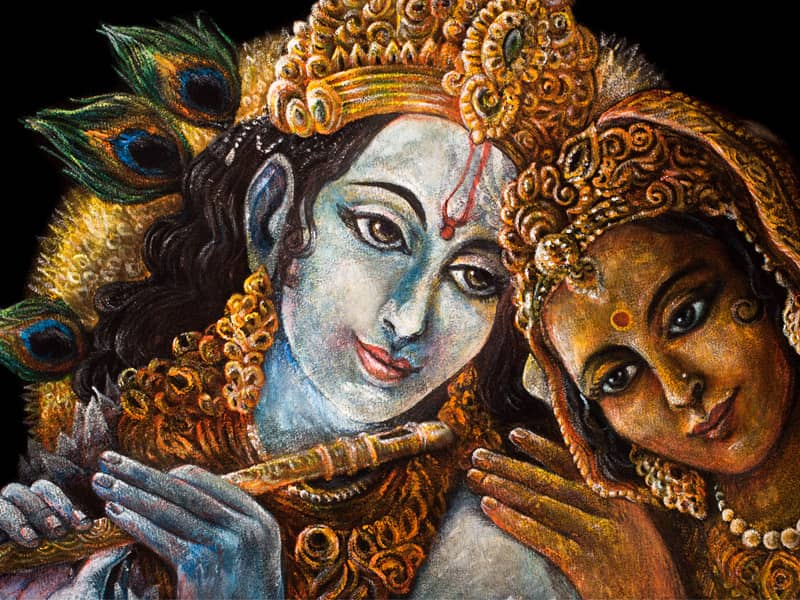From Beliefnet's Hinduism archives, a column from Spring 2000. V.S. Naipaul won the Nobel Prize in Literature in October 2001.
"Do you have to believe in God to be a Hindu?" This piquant question has been posed--perhaps rhetorically--by Anil, a member of Beliefnet. His query, posted on this site's Hinduism section, has thus far gone unanswered by other members.
I am not about to answer Anil's question, or at least not directly; I would like, instead, to link it to a train of thought I've had recently.
The other day, I went to the 92nd Street Y in Manhattan to listen to a reading by V.S. Naipaul. The Anglo-Trinidadian-Indian writer is, in my opinion--and in the estimation of others--the most polished and clear-headed contemporary writer in the English language. He chose to read from "Beyond Belief: Islamic Excursions Among the Converted Peoples," his last book on the subject of Islam--a religion he had addressed previously in "Among the Believers." Naipaul has not written books specifically about Christianity or Hinduism; Islam remains the only religion he has addressed directly and sought to analyze at length.
Yet I, and others, have always regarded Naipaul as a Hindu. To my mind, his most moving novel is "A House for Mr Biswas," whose themes, characters, and flavors were drawn from his own early life in Trinidad. It's a peerless and compelling portrait of Caribbean Hindu society, drawn by a man who fully grasped the nuances of Hindu hierarchy. In fact, as a Brahmin by birth, he has often benefited from the advantages afforded by that hierarchy. (To be fair, most commentary on his "Brahminic" side--whether disparaging or admiring--has come from others. The author has never accentuated his Brahmin-ness, even though his persnickety mien has often, and with reason, been taken for the high-handedness of the high-born.)
Recently, Naipaul gave his imprimatur to a book of letters, "Between Father and Son," the collected correspondence between his father, Seepersad, and himself. On National Public Radio, he described the letters as "a cultural record of our community, the Hindu community of Trinidad."
Imagine my surprise, then, when Naipaul shot down a question put to him at the 92nd Street Y, at the end of his reading session. Was he the follower of any religion? "I have no faith," was the writer's naked response.
He didn't mention Hinduism, and didn't say that he was a Hindu. (He added no footnotes to his one-line riposte, so we didn't find out, even, whether he is an atheist or an agnostic.) This takes me back to the question with which I started this column--do you have to believe in God, or have faith, to be a Hindu?
Naipaul, I maintain, is a Hindu, even though he professed that night in New York to have no faith. He is a cultural Hindu--much in the way that non-devout Jews might be described as cultural Jews--and a man deeply occupied with the larger questions of the history of the Hindu. In a brief introduction, given before he commenced his reading at the 92nd Street Y, he touched upon one of these questions--the consequences of a series of Muslim invasions of India beginning in the 10th century--and remarked on how these invasions had "shattered" Indian (at that time almost exclusively Hindu) civilization.
This reminded me of an observation he once made in the aftermath of the assault on the Babri mosque in Ayodhya, in northern India, in December 1992. This was a calculated act of destruction carried out by Hindu fundamentalists who believed that the mosque stood on the site of the Hindu deity Rama's birthplace, known in Sanskrit as rama janmabhoomi.
Naipaul described the mosque's destruction as being part of a "mighty creative process" unleashed by fin-de-siecle Hindus, descended from the very people whose world he has described as having been "shattered" by Islamic invaders in the last millennium. His words were profoundly controversial at the time, and the Indian liberal intelligentsia--comprising English-speaking Naipaul readers--was taken aback by the writer's apparently unfashionable observation.
But Naipaul wasn't making triumphal assertions of faith amid the ugly rubble of the mosque. As he told us in New York, he has none. He was making a statement of identity, his Hindu identity. This has little to do with visiting temples and worshipping at shrines. It has everything to do with a perception of history, of a view of history as a vast canvas. Naipaul wasn't justifying the destruction of a mosque by Hindu fanatics. He was, instead, paying intellectual court to the interplay between the Hindu past, present, and future. His words were delphic, perhaps deliberately so, and may have reflected a tension in his own mind--that between a cosmopolitan distaste for acts of violence on the one hand and, on the other, an elemental desire to decipher the political currents that were coursing through "his" people at the time.
Although he's not a participant in Hindu nationalist politics, nor even a man who has faith, I can't help believing that he is a Hindu by self-image, and by self-regard. There are tens of thousands of Hindus like him, people to whom upheavals in Hindu society matter profoundly but to whom faith is never a central issue. I am one such Hindu. And Naipaul is perhaps the most eye-catching of us all.

